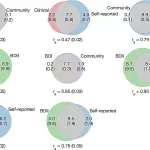A new strain of Mpox, identified as Clade 1b, has raised alarm among infectious disease experts due to its ease of transmission through physical contact and increased mortality rate, especially among children. This announcement was made on Monday, shedding light on the potential global health implications of this variant.
Geographic and Epidemiological Context
Currently, Clade 1b is confined to the Democratic Republic of Congo (DRC) in Central Africa. This region has been battling endemic cases of the more lethal Mpox Clade 1 for decades. However, the new Clade 1b, which emerged around September 2023, has shown increased transmissibility. This is a stark contrast to the Mpox Clade 2b, which caused a global outbreak in 2022, resulting in 94,707 confirmed cases across 107 countries.
Expert Insights
Infectious disease expert Dr. Ishwar Gilada highlighted the historical presence of the more lethal Clade 1 in the DRC, noting its recent evolution into the more transmissible Clade 1b. Dr. Rajeev Jayadevan, co-chairman of the Indian Medical Association’s National Covid-19 Task Force, emphasized the higher mortality rate associated with Clade 1b, which affects both men and women without the need for sexual contact and poses significant risks to children and pregnant women.
Scientific Findings
Researchers from the University of Oxford have reported that Clade 1b has a mortality rate of 5% in adults and 10% in children. This new strain’s ability to cause miscarriages and stillbirths further underscores its severity. Gautam Menon, Dean of Research and Professor of Physics and Biology at Ashoka University, warned of the strain’s potential for easier human-to-human transmission compared to previous strains.
Current Situation in the DRC
The Africa CDC reported a mortality rate of 6.7% from 4,488 suspected Mpox cases in the DRC in 2024, with a significant majority of cases and deaths occurring in children under 15. However, it remains unclear whether all these cases are due to the new Clade 1b or the original Clade 1 strain. Dr. Jayadevan highlighted the challenges in accurately estimating mortality rates due to underreporting and the difficulty in distinguishing Mpox from chickenpox based on lesion appearance.
Global Implications
While there are no current indications of Clade 1b spreading to other countries, experts caution that global travel could facilitate its transmission. Dr. Jayadevan warned that if the new strain spreads internationally, it could lead to a different pattern of infection, affecting women and children more significantly than the 2022 outbreak.
Preventive Measures and Recommendations
Despite the absence of Clade 1b cases in India, Dr. Ishwar Gilada called for increased vigilance through whole genome sequencing and the establishment of guidelines to monitor the situation. Dr. Gautam emphasized the existence of Mpox vaccines and noted that the virus mutates more slowly than Covid-19, suggesting that while vigilance is necessary, stringent measures are not yet warranted.
Conclusion
The emergence of Mpox Clade 1b represents a significant development in the ongoing fight against infectious diseases. With its potential for higher transmissibility and mortality, especially among vulnerable populations, global health authorities must remain vigilant and prepared to respond to any signs of international spread.










